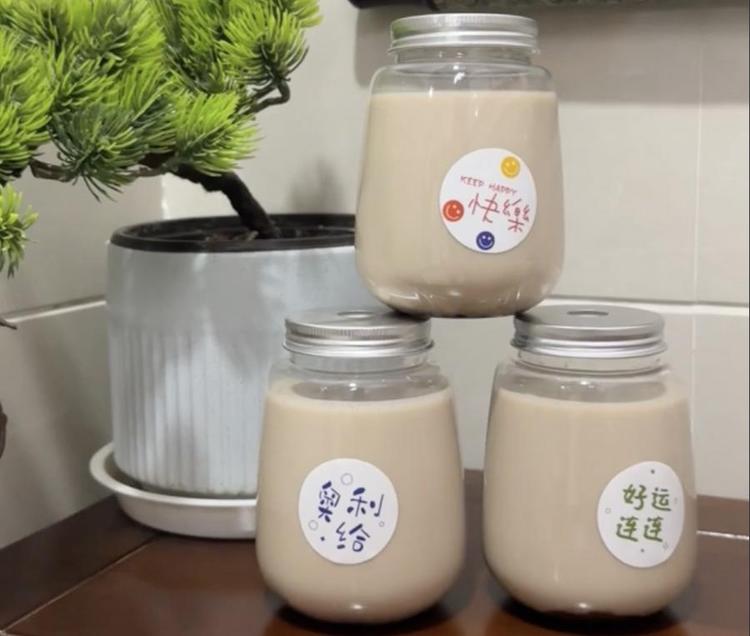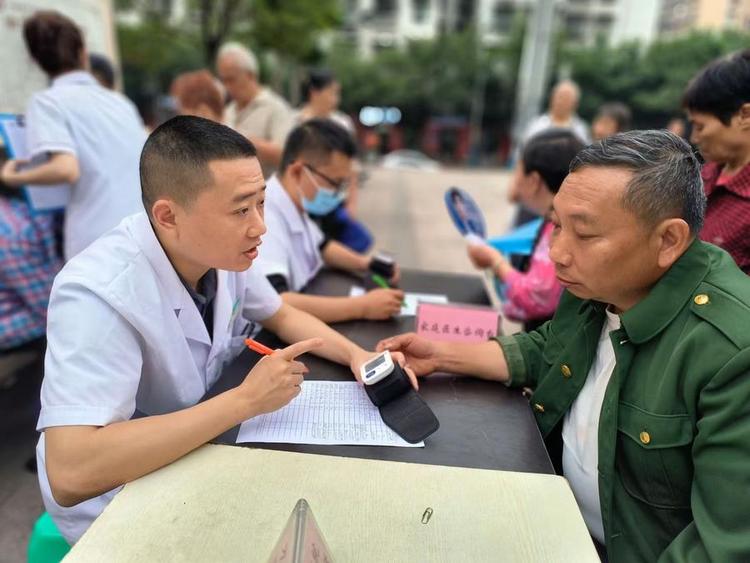 Bridging News
Bridging News
Bittersweet Elixir: Traditional Chinese Medicine Meets Modern Milk Tea

This photo taken on Aug. 28, 2024 shows milk tea infused with traditional Chinese medicine ingredients in southwest China's Chongqing Municipality. (Photo/Gu Xun, Xinhua)
Chongqing - The old adage "good medicine tastes bitter" may no longer hold true in China.
Xi Linjie, a 20-year-old college student, sought help for fatigue at a traditional Chinese medicine (TCM) hospital in southwest China's Chongqing Municipality and was pleasantly surprised with a cup of sweet milk tea.
"The milk tea is infused with TCM ingredients such as tapioca and dried tangerine peel, yet it tastes delightful. It's less sweet than regular milk tea and has a subtle herbal fragrance," she said. "Most importantly, it's beneficial for health."
This innovative milk tea is crafted by the nutrition department of Chongqing Jiangbei Hospital of TCM. Since 2023, the hospital has blended TCM processing techniques with contemporary food production to attract a younger demographic.
"Milk tea is a favorite among young Chinese people. We hope it can act as a bridge for them to gain more knowledge about TCM and to gradually accept TCM," said Liao Changying, director of the hospital's nutrition department. She noted that almost every person who has tried the milk tea shared the special experience with their family and friends.
The hospital has employed various modern technologies to maximize the efficacy of TCM while improving the taste. For instance, to reduce astringency, pharmacists substitute rose petals with rose essential oil; to optimize the effect and flavor of ginseng, they utilize ultrafine grinding and fluid extraction technologies.
The hospital also innovates by incorporating TCM into candies, cakes and canned products.
"Behind the TCM milk tea are numerous experiments and optimizations. It represents the integration of TCM, modern medicine, nutrition and more. Our goal is to help people prevent and manage diseases while enjoying delicious food and drinks," Liao explained.

A doctor gives advice to a local resident at a traditional Chinese medicine market in Wansheng economic development zone, southwest China's Chongqing Municipality, Aug. 16, 2024. (Photo/Xinhua)
The TCM milk tea exemplifies how traditional medicine is appealing to the younger generation in a relatable and approachable manner. Nowadays, one doesn't even need to visit a hospital to experience TCM in China.
In Chongqing's Wansheng economic development zone, a TCM night market is held every weekend. Several TCM practitioners offer pulse readings at roadside stalls.
"At these diverse stalls, we can enjoy free TCM diagnoses and acupuncture, and purchase TCM sachets and beverages," said Yang Jian, a 24-year-old local resident. "I never realized TCM could be so close to our daily lives."
Professor Wang Huiwu from the Second Affiliated Hospital of Chongqing Medical University, who attended the night market, was pleased to see many young visitors seeking professional health advice on physical conditioning.
"Over half of the visitors are young people interested in health consultations for body conditioning, which indicates that the younger generation has confidence in TCM," Wang said.
He also suggested that more efforts should be made to integrate TCM with other fields that interest young people, stating, "TCM is becoming a new trend among the youth."
 Related Stories
Related Stories